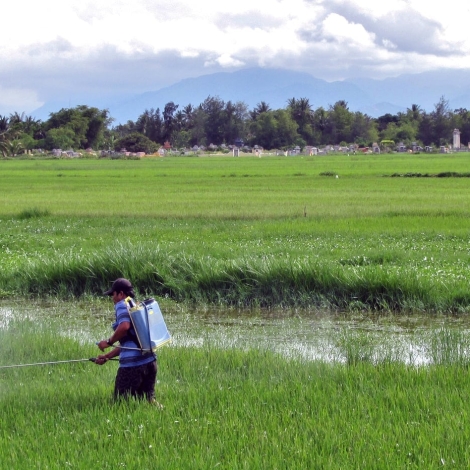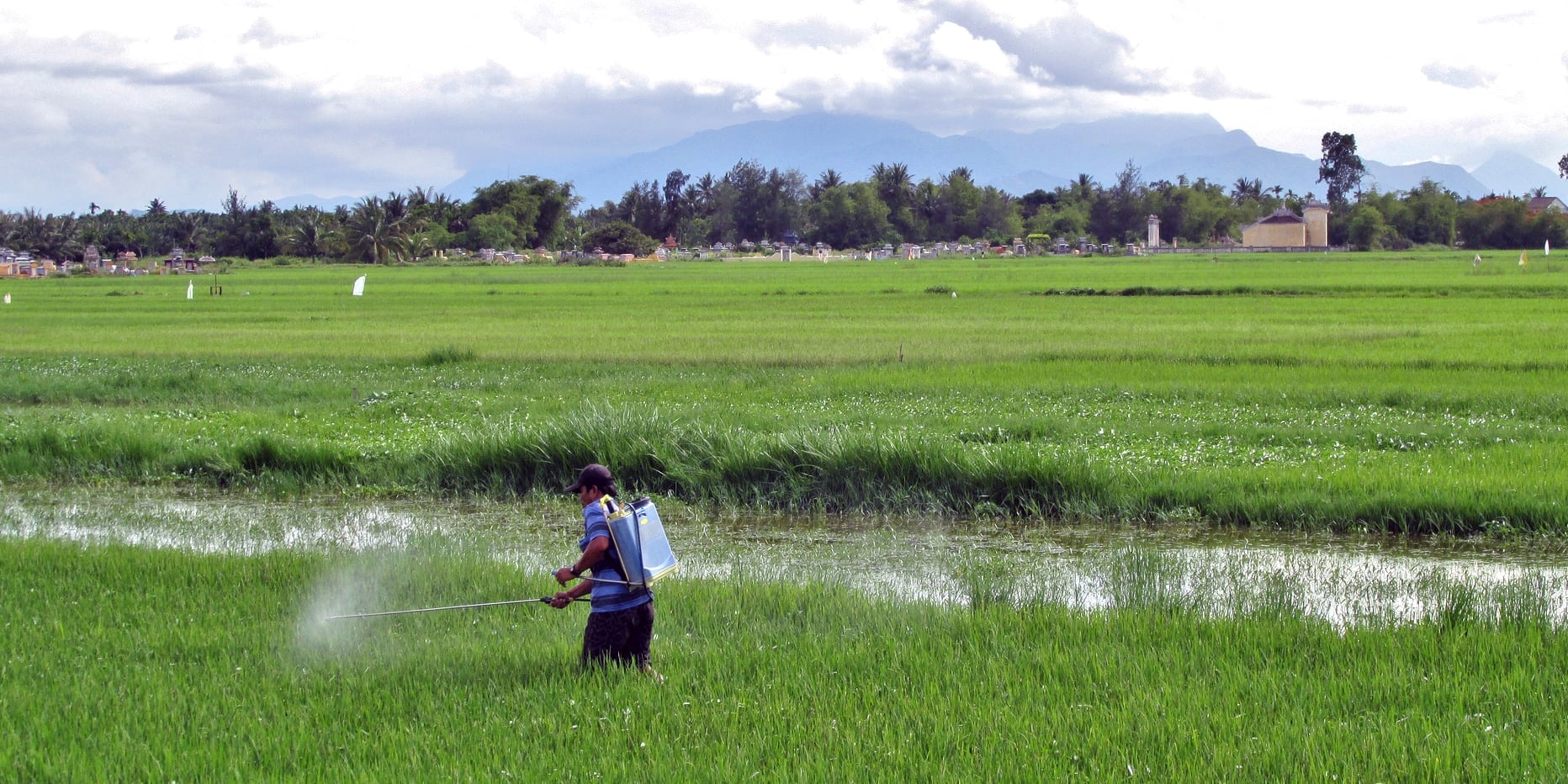Aqueous Solutions’ Bellwether Event Brings New Capacity to the WASH Sector.
Environmentally persistent trace pollutants – such as pesticide runoff, pharmaceutical and personal care product residues, industrial effluents, manufacturing additives, disinfection by-products, as well as naturally occurring toxins – impact water sources and threaten public health in communities around the world. Pollution by synthetic chemical contaminants is often more severe in developing countries compared to affluent regions as many compounds that have been banned or restricted in Europe and North America are used or disposed of throughout the developing world in an unregulated manner. Exposure to these chemicals can lead to cancer, birth defects, reproductive disorders, endocrine disruption, neurological dysfunction, organ damage, and other acute and chronic health problems.
Chemicals that mimic natural hormones and thereby disrupt the endocrine system are commonly associated with the processes, products, and wastes from the manufacture of pesticides, plastics, pharmaceuticals, furniture, electronics, and thousands of other common consumer products that emerge from factories and end up in recycling/disposal sites throughout the developing world. Recent research has indicated with greater than 99% certainty that exposure to endocrine disrupting chemicals is linked to neurological effects such as attention deficit disorders, obesity and diabetes, and male reproductive disorders including infertility. Some of the most troubling and costly impacts are associated with effects on children’s developing brains – numerous studies have linked widely used pesticides and flame retardants to neurological disorders and altered thyroid hormones, which are essential for proper prenatal brain development.
Clearly, one of society’s Grand Challenges for the 21st Century will be discovering and implementing methods for reducing environmental and public health harms from exposure to toxic synthetic chemicals. To-date, however, Global WASH Development programs have neglected this critical component of drinking water safety. For example, WaterAid’s recently published “Global Goals Toolkit” highlights the centrality of WASH and safe drinking water for attaining the new UN-SDGs, but omits any mention of “chemicals” and their impact on communities’ drinking water safety. Synthetic organic chemicals currently occupy the WASH sector’s blind spot, and form the Achilles’ heel of all major “Safe” Water programs. (To be sure, microbial pathogens will continue to be the most immediate threat to human health from contaminated drinking water in most locations throughout the developing world and continued focus on these disease agents is warranted. However, the ubiquitous and growing threat of environmentally persistent and bio-accumulating toxic organic chemicals can no longer be ignored.)
Aqueous Solutions is leading the charge to propel this issue to greater prominence in the WASH sector and spur innovative and affordable solutions. This October (10-14, 2016) we are hosting the bellwether event at the University of North Carolina Water & Health Conference.
This special event is an Innovation Accelerator – an intense, dynamic session designed to:
- Raise the problem of organic chemical water contaminants to prominence in the global WASH sector
- Stimulate targeted innovation of potential treatment technologies, and evaluation of extant common pathogen-control drinking water interventions (e.g., biofilters) for potential chemical removal
- Generate rapid evaluation and critical-constructive feedback from experts regarding technical merit and real-world applicability
- Elicit commitment to support research, field testing, deployment, and scale-up from major WASH agencies
More information will be coming soon about this event and how you can participate. Briefly, we will issue a Request for Proposals in June, 2016. Selected proposals will pitch their innovations in short (~15 minutes), compelling presentations that have a hybrid character – part academic conference scientific presentation, part “TED talk,” and part “tech start-up pitch to investors.” Pitches will be made before a panel of eminent experts consisting of environmental engineering and science researchers, and on-the-ground experienced WASH development practitioners. When a pitch is made, the expert panel will provide immediate critical feedback and evaluate the proposal based on its scientific and technical merits, as well as based on feasibility given the contexts typical of developing communities and the specific circumstances of deployment described in the pitch.
Also in attendance at the event will be invited representatives from major government agencies, I/NGOs, and philanthropic foundations engaged in research, development, and funding of WASH programs. The discourse of pitches and expert feedback will unfold dynamically under the visage of these representatives who can move institutional and financial resources towards critical needs and innovative solutions. The Accelerator Event will end with a statement of reflection-response from participants, and a discussion of next steps for development of programmatic and funding support for research, pilot testing, implementation, monitoring, and scale-up of promising initiatives.
Save the date October 12, 2016. For details please see Controlling Toxic Chemicals in Drinking Water in Developing Communities, An Innovation Accelerator.

